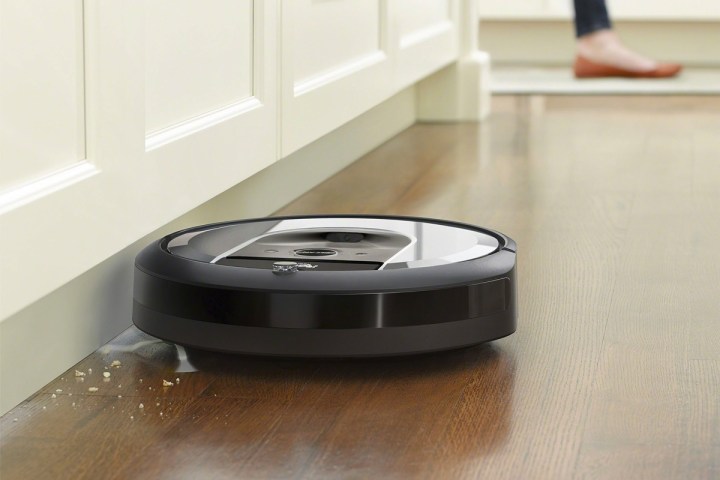Alexa has seen things.
Alexa has seen everything.
With Amazon’s almost-certain impending acquisition of iRobot, consumers have been in a bit of an uproar over privacy. The idea that Amazon will have access to the layout of your home has been a big talking point (for some reason), but honestly, there’s no need to worry about that sort of thing. Your privacy is secure, simply because you don’t really have any. No one does.

Privacy, like shag carpeting, is a thing of the past. The only difference is that shag carpeting is likely to return one day.
Smart technology inherently calls for the loss of privacy
Technological privacy depends on trust.
The use of motion sensors, presence detectors, and security cameras relies on you placing some level of faith in your technology. Ultimately, the question boils down to: Do you trust Amazon to keep your information private?
The use of smart home technology requires you to put some level of trust in your technology.
In a way, I do. Amazon isn’t going to sell any of the consumer data they have on me to competitors. That would be an idiotic business move. Instead, they’ll use it to advertise more catered products straight to me. That’s something I can live with, especially since I use so many ad blockers that I haven’t seen an ad in about four years.
Another reason I’m not so worried is because, well, I’m honestly boring. I’m not concerned if Amazon knows things about me, because there isn’t much to know. I work, and then I cook, read, and play video games in my downtime. If Alexa has a sneaky built-in subroutine to snap naked pictures of me, well, maybe they can send me a few. I need progress pics for losing the Quarantine 15.

No one likes being advertised to, and no one likes the idea that someone might be listening to their private conversations. In an ideal world, we would all have the assurance that our private moments are just that.
Unfortunately, we don’t live in an ideal world, and homes with smart technology have a lot of moving parts. Different product brands each have their own privacy settings, and your overall smart home has its privacy settings. All you can do is make sure the microphones are disabled when not in use, invest in cameras that have physical lens covers, and enable two-factor authentication on all your devices.
The last thing you want is someone else logging in and snooping. Or shopping.
Does smart home technology pose a real privacy risk?
Anything that can be accessed through the internet poses a privacy risk. That’s not limited to smart home tech. Your smartphone, tablet, and even your Xbox Kinect that’s still set up for some reason could all, theoretically, be hacked into.
The question is how likely it is that something like that will actually happen.
Statistics are on your side. Hackers aren’t really interested in your private conversations (unless they include banking information) or naked pictures of you. The kind of information malicious elements want is the kind that will give them money.
“But what if someone blackmails you for a nude photo?”
If they want to try and extort money from me for a grainy picture of me wrapped in a towel, hunched over my desk as I rapidly respond to a message with a near-empty coffee cup in hand, they can try. It won’t work.
As for whether Amazon having access to that data is a threat … again, the answer is a resounding no. Unless the risk is more advertisements. At this point, I wouldn’t be surprised if my Roomba paused halfway through a clean cycle in an empty spot in the floor and said, “There’s a table lamp 47% off on Amazon right now that would be a great fit for this space.” See, my Roomba has a mute button.

Plus, I could just swap out my furniture arrangement to keep Amazon guessing. It could be fun.
Seriously, though: Your smart home technology, provided it comes from reputable companies, is most likely safe. Not all companies have a great track record with privacy, though.
Not even Amazon does, really — but they have taken steps in recent years to improve the privacy of their smart home platforms. Users can now disable recordings, delete them from Amazon servers, and more. It’s a step in the right direction.
Google is also stepping up to improve privacy. As for other companies, I’ll say this: There’s a reason I don’t have a Facebook Portal in my home, and I never will.
If the iRobot acquisition is worrying, it doesn’t really need to be. I would take greater offense to Amazon’s union-busting efforts than I would to the purchase of another smart home company.


